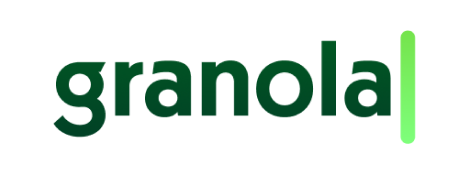Who Gives A Crap is a 100% bootstrapped Australian startup turned global B Corp™ certified company. They serve over half a million customers around the world with a team of over 80 employees, based across Australia, Asia, the US, and Europe. They rely on Slack as their digital HQ for teamwork and finding the information they need to do their best work.
Co-founded by Simon Griffiths, Danny Alexander and Jehan Ratnatunga in 2010, Who Gives A Crap set an ambitious goal to help the then 2.4 billion people globally who lacked access to sanitation by selling ethically made toilet paper. Their mission? To make toilet paper that feels good to you and does good for the world. Their positive impact is backed by their mission to turn sales into social purpose, with half the company’s profits going directly to their charity partners in developing countries.

“Slack is at the center of all team communications. It’s how teams connect, it’s how we collaborate cross-functionally and it’s how we align on goals.”
Adapting to a surge in demand
Imagine carefully drafting your pandemic shopping list, mere hours before a government-mandated lockdown: pasta, baked beans, hand sanitizer and…as much toilet paper as you can carry? For many alarmed Australians, the humble toilet roll became a prized status symbol to stockpile at home or offer your next-door neighbor as an act of goodwill.
Griffiths, the company’s CEO, saw an opportunity in selling toilet paper after volunteering in developing countries that lacked the same luxuries as the Western world. As a young entrepreneur, he wanted to tap into “the trillions of dollars changing hands in the economy through the sales of goods and services”. That opportunity accelerated in 2020: the first Covid-19 enforced lockdown in Australia saw WGAC sales soar.
“In general, the pandemic has resulted in a step change in our business,” says Griffiths. “At the panic buying peak, we were selling 28 rolls of toilet paper per second and our waitlist grew to over half a million people.”
According to Interbrand’s Breakthrough Brands AU+NZ 2020 Report, Who Gives A Crap’s sales increased by 1,000% during Covid-19. They also donated $5.85 million to their charitable partners — an impressive 750% increase from donations made in 2019.
As demand for Who Gives A Crap products surged (they also make tissues, paper towels and Swedish dishcloths), so did the need to stay connected as a team to act fast as the online orders poured in. As their business grew, so did the amount of customers and data they needed to work with. The team needed to stay efficient and uncompromising in the quality of their products and customer service. “Slack is at the center of all our team communications,” Griffiths says. “We’re on it all day long. It’s how teams connect, it’s how we collaborate cross-functionally and it’s how we align on goals.”
Who Gives A Crap relies on Slack as its secure channel-based messaging platform to keep conversations organised, find the answer to a question in the archives, and start a call with colleagues when talking face-to-face makes more sense than messaging as a medium.
Closing communication gaps
Griffiths says he sees his role as both a team leader and go-to person for support. As the CEO of the company, he needs to make sure that everyone has the information they need to do their jobs and promotes a culture of knowledge sharing. Slack helps make clear where anyone can go to ask a question or give updates. “I make sure all of our teams are aligned and help make decisions that enable us to grow and increase our impact,” he says.
“As a company that spans more than four time zones, communicating with platforms like Slack is built into our DNA as a business,” Griffiths adds.
With Slack channels, a single place to share files and messages, the team can rethink how they use internal communication tools to collaborate. “We use Slack channels to keep everything organised,” Griffiths says. “Each team has a channel, our hubs have channels, key cross-functional teams have channels, and so on. We also have channels that are organised by project, and channels for weekly or monthly company reporting.”
Some of the team’s most popular Slack channels that they spend time working in, include:
#watercoolerfor casual conversations like weekend plans, lunch invites, or sharing interesting news articles#companywide_updatesto keep everyone connected to important changes, initiatives or team accomplishments#remotelyawesomethat acts as a highlights reel for the upsides of remote work

Simplifying work across time zones
As a globally distributed company working asynchronously across time zones, Griffiths points out that every piece of communication or product launch happens over Slack. This included coordinating a recent media campaign aimed at delighting their customers.
When Who Gives A Crap had to declare sold out stock globally due to unprecedented demand in Australia, the US and the UK, Slack empowered the team to speed up their time to action and translate global sales data into a spontaneous in-joke marketing campaign with their customers.
The team took out a full-page newspaper ad that read, “Have you ever run out of toilet paper? We have, too. We have printed this page for you to use.”
Griffiths credits this strategic companywide alignment to the team’s tech stack: “We got there with a lot of hard work and communication, much of which happened over Slack.”
As a cloud-based company, Who Gives A Crap also uses Slack integrations such as Zoom and the Google Suite to catch up, brainstorm new ideas, and work together.
With an equal love of irreverence, humor, and heart, the team knows the value of a well-chosen digital backdrop or giggle-worthy GIF. The company’s people operations platforms such as Greenhouse, Culture Amp and BambooHR all integrate with Slack and help keep everyone connected across multiple time zones, too.
Partnering securely with external vendors
There’s no playbook for navigating a global pandemic. But to make better decisions and pivot faster, companies need to work with people who are smarter than them. Who Gives A Crap recognised that partnering with specialists who offer skills they lack in-house can transform their productivity and perspective.
With the help of Slack Connect, a faster way for organisations to work with their partners and customers, Griffiths’ team communicates with external parties, switching from cluttered inboxes and long email threads to real-time messaging in Slack channels. This helps them tap into other peoples’ knowledge, ideas, and recommendations to drive results.
“We love communicating with our external partners with Slack Connect. It’s incredibly convenient to have all of our work communications in one place. Conversations are really easy to lose track of if you’re moving to and from different platforms, and Slack solves this for us.”
Slack Connect allows Who Gives A Crap to create a new channel so that another organisation can collaborate with them by sending files and messages in real-time. Slack’s security and compliance tools help companies safely join forces with external vendors so that all shared data stays protected, secure and confidential.
Who Gives A Crap maintains a close partnership with San Diego-based direct-to-consumer data analytics agency, Daasity. Who Gives A Crap needed to make many data-driven decisions during the early waves of Covid-19. Enlisting external expertise helped Griffiths’ team track sales activity over three global e-commerce stores to make strategic decisions instead of relying on instincts alone. As a nimble company, this helped Who Gives A Crap lean into continuous improvement, thinking systematically, and operationalising tasks.
For example, Who Gives A Crap noticed in early March that product orders increased by 300%. A day later, that volume climbed to 1100%, then 20, 30 and 40 times as much as regular sales. “By tracking real-time data with our agency Daasity, in Slack, we were able to quickly pivot when we noticed our product orders spike during Covid-19, delivering a better experience for our customers.” This allowed them to set up an email waitlist while they restocked, to avoid disappointing new customers around the world.
With Slack, files and conversations can exist side by side so that Who Give A Crap’s cross-functional team has access to the most up-to-date information. Globally distributed colleagues can not only get work done more easily but also develop a shared language. There’s also the option of flexible messaging to keep requests and updates responsive and reflective of new realities in a rapidly changing environment.
Want to make adaptability your competitive advantage? Read our guide on navigating the disruption of work.















